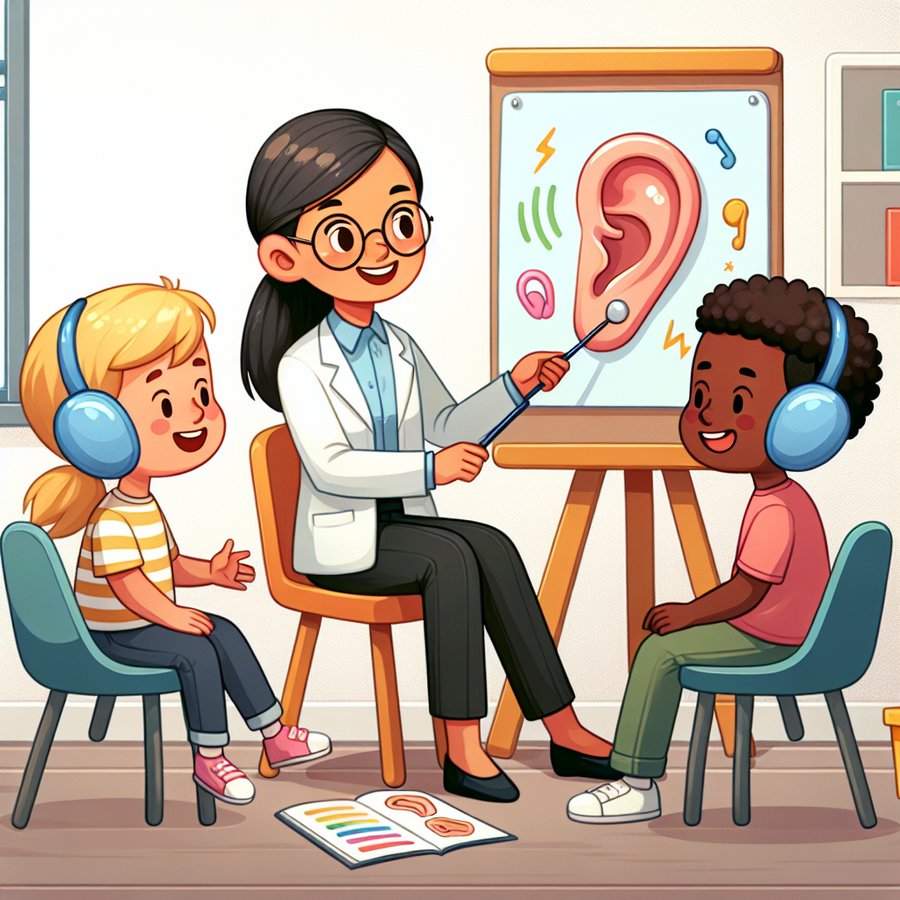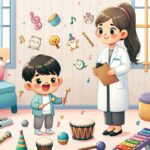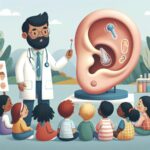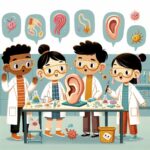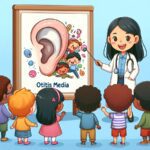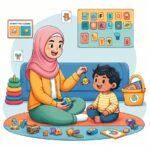Unilateral hearing loss in babies is a condition that affects many families, yet it often goes undiscussed. Understanding this condition is crucial for new parents to ensure their child receives the necessary support and interventions. This comprehensive guide delves into the intricacies of unilateral hearing loss, offering insights and practical advice to help your baby thrive.
What is Unilateral Hearing Loss?
Unilateral hearing loss (UHL) occurs when there is a decrease in hearing in one ear. It can range from mild to profound, impacting a child’s ability to localize sound and understand speech, especially in noisy environments. The causes of UHL in babies can vary, including genetic factors, complications during birth, infections, and more. Early detection through universal newborn hearing screening is paramount for effective management.
Contrary to common belief, even a mild form of unilateral hearing loss can have significant effects on a child’s language development, academic achievements, and social interactions. Therefore, understanding and addressing this condition early on is essential for parents.
How is Unilateral Hearing Loss Diagnosed?
Diagnosing unilateral hearing loss in babies involves a series of tests conducted by audiologists. These include otoacoustic emissions (OAE) tests, auditory brainstem response (ABR) tests, and others. These non-invasive tests are crucial for determining the presence and extent of hearing loss in one ear. It’s important for parents to follow through with these screenings, especially if their baby failed the initial hearing test after birth or if there’s a family history of hearing loss.
After diagnosis, your audiologist may recommend further evaluations to identify the cause of the hearing loss, such as genetic testing or imaging studies. This step is crucial for planning appropriate interventions and support.
Supporting Your Child With Unilateral Hearing Loss
Support for a child with unilateral hearing loss ranges from medical interventions, such as hearing aids or cochlear implants, to communication strategies and educational accommodations. It’s essential for parents to work closely with audiologists, speech therapists, and educators to create a supportive environment for their child’s development.
At home, parents can employ strategies to improve communication, like ensuring they’re facing their child while speaking and minimizing background noise. Additionally, engaging in activities that promote listening and language skills is beneficial. For more tips on enhancing communication, check out our guide on auditory processing.
Understanding the Impact of Unilateral Hearing Loss
The impact of unilateral hearing loss on a child’s life can be profound, affecting everything from academic performance to social integration. Children with UHL may experience difficulties in localizing sound, understanding speech in noisy environments, and may exhibit a delay in language development.
However, with early intervention and appropriate support, many children with unilateral hearing loss lead full and successful lives. Parents and caregivers play a pivotal role in this journey, advocating for their child’s needs and ensuring they have access to the resources they require. For further reading on supporting your child’s development, consider exploring information on language development.
Resources and Support for Families
Finding the right resources and support is crucial for families navigating unilateral hearing loss. Many online communities and organizations offer support, information, and advocacy for individuals with hearing loss and their families. Engaging with these communities can provide invaluable insights and encouragement.
Additionally, consider connecting with local support groups and educational programs designed for children with hearing loss. These programs often offer services such as speech therapy, auditory training, and social skills workshops, which are instrumental in a child’s development.
Understanding unilateral hearing loss in babies is the first step towards ensuring your child receives the support they need. By staying informed and proactive, parents can play a crucial role in their child’s development and well-being. For more information on related conditions and support strategies, visit our comprehensive guides on ear infections and hearing tests.

